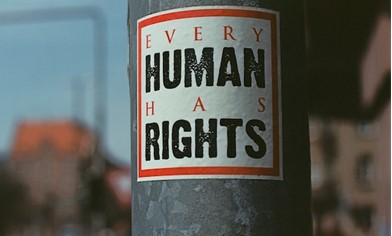Amy A. Mousavi is an attorney and human rights advocate. In the following article, Amy Mousavi discusses the history and significance of the Universal Declaration of Human Rights.
The Universal Declaration of Human Rights (UDHR) is perhaps one of the most important documents in human rights history. Drafted by incredible people from a range of cultural and legal backgrounds, it marks the first time that humans’ fundamental rights were to be universally protected.
It’s a worldwide blueprint for equality and freedom, ensuring the rights of every person are protected regardless of where they reside. Containing 30 freedoms and rights, the milestone document isn’t legally binding but influences various national legal frameworks and constitutions.
Amy A. Mousavi on The Contents of the Declaration
Amy Mousavi says that to understand the significance and history of the UDHR, people must try to realize the contents of the Declaration:
It states that all humans are born equal and free, the everyone is equal, regardless of color, race, language, religion, sex, place of birth, or political views.
Additionally, Amy A. Mousavi says that the Declaration indicates that everyone has the right to life, and to live in safety and freedom. All humans have the right to be free from slavery and torture and to be recognized by the law.
According to Amy Mousavi, the UDHR also indicates that all humans are equal before the law and have the right to find justice in the court of law if their rights have been violated by another person, institution, or business. All people have the right to freedom from arbitrary arrest, exile, and detention, as well as a right to a fair trial.
Furthermore, all people have the right to be presumed innocent until proven guilty, freedom and privacy from attacks on their reputation, freedom of movement – ensuring that all individuals can leave and enter the country at will. People may also seek asylum for protection, all people have the right to a nationality, and all have the right to marry and have a family.
All people, worldwide, bear the right to own property, and have freedom of thought, religion, and consciousness. Freedom of expression, opinion and to assemble and associate peacefully.
Amy A. Mousavi also notes that the UDHR states that all people have the right to participate in government and have access to public services. Everyone has the right to social security, the right to work, equal pay, unemployment protection, and unionization.
All people have the right to leisure and rest, and all people should be able to provide a decent living standard for themselves and those they support. Additionally, all people have the right to education, and the ability to participate in art, science and culture.
Last but not least, Amy Mousavi says that everyone has the right to social order where all of these rights are recognized, and the duty to protect other’s rights. No one can take away these rights listed above.
 The History of the UDHR
The History of the UDHR
Amy Mousavi explains that while the UDHR was adopted on December 10, 1948, by the UN General Assembly during the 183rd plenary meeting, it began life in February 1947.
Aligning with a decision from the original Commission on Human Rights session, Eleanor Roosevelt, Charles Malik, and Pen-Chun Chang began drafting the International Bill of Human Rights. Assisted by the UN Secretariat, the formulation of the preliminary draft was a task offered to John Humphrey.
But after receiving a letter from the Commission on Human Rights Chairman on March 27, 1947, the drafting committee was expanded to include individuals from the Soviet Union, the UK, Chile, France, and Australia.
Once the final draft was created with contributions from all regions and religious, cultural, and political backgrounds, the UN Commission on Human Rights discussed the UDHR before eventually adopting it in 1948.
The UDHR’s Significance in The Modern World
Amy Mousavi reports that ever since its adoption, it’s remained an integral part of human life, whether people acknowledge it daily or not.
As its name suggests, the Declaration is universal. In other words, it applies to everyone in all countries. And even though it isn’t legally binding, it influences the actions of policymakers and governments across the planet.
The Declaration has formed the foundation of legally binding human rights documents, becoming an undeniable benchmark for human rights standards that must be protected, supported, and promoted everywhere.
In the modern world, Amy Mousavi says that it continues serving as this foundation, influencing national and international standards and laws. And for charities and other organizations, it inspires them to keep pushing their missions and visions for human life forward.








